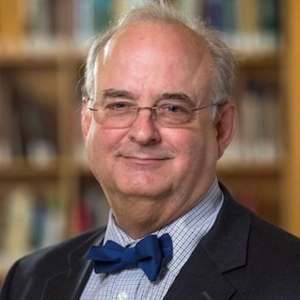Location:
Berg Family Foundation Seminar Room, Level 6, Wallace Wurth Building, Kensington Campus, UNSW Sydney
Contact for enquiries
Rata Joseph, +61 (2) 9385 0900 or recpt@kirby.unsw.edu.au
Kirby Institute Seminar Series presents
 |
Professor of Medicine and Public Health, Brown University, USA |
About your speaker
Dr Stefan Gravenstein is an internationally-renowned geriatrician and Professor of Medicine and Public Health at Brown University in USA, and Associate Director, Center of Innovation in Long-Term Services and Supports for Vulnerable Veterans at the Veterans Hospital, Providence, Rhode Island. He completed internal medicine residency and geriatrics fellowship at the University of Wisconsin-Madison and William S Middleton Veterans Administration Medical Center, where he joined the faculty and was tenured prior to joining Eastern Virginia Medical School (EVMS). At EVMS, he became the John Franklin Chair of Geriatrics, Director of the Glennan Center for Geriatrics and Gerontology until being recruited to Brown University in Providence, RI, USA. There he became and remains the Clinical Director of the Centers for Medicare and Medicaid Quality Improvement Organisation and Network, Quality Partners of Rhode Island (now Healthcentric Advisors), which oversees quality improvement work for The Centers for Medicare & Medicaid Services in New England. He briefly returned to Cleveland from 2012–2017, where he was Director for the Center of Geriatrics and Palliative Care at University Hospitals Cleveland Medical Center and Case Western Reserve University where he served as Director, Center for Geriatrics and Palliative Care, and returned to Brown University and the Providence Veterans Administration Hospital in 2017. He is also the Informal Independent Dispute Resolution designee for the Centers of Medicare and Medicaid since 2010.
Academically, he has been a clinical educator and researcher since completing his fellowship in 1987. Recently, he reported on a cluster randomised controlled trial evaluating over 38,000 residents of 823 US nursing homes, comparing the relative effectiveness of Fluzone High Dose with standard dose influenza vaccines (Gravenstein et al. Lancet Respir Med 2017; 5: 738-746). He has enjoyed uninterrupted competitive and non-competitive funding since completing fellowship, with a primary focus in immune senescence, vaccines and aging, and quality improvement, with a particular focus in the long-term care setting and relating to influenza and infection. Federally-funded work relates to vaccine immunogenicity in older adults, and antibiotic stewardship in long-term care settings; and new work relates to pragmatic trials and epidemiologic work leading to new vaccines, including in the Veterans Affairs setting.
Abstract
Aging and multiple morbidities increase the risk for severe outcomes from influenza. 90% of hospitalisations relating to pneumonia and influenza occur in those aged 65 and older, even though they only comprise 15% of the population. As people age, so the impact of influenza changes from primarily respiratory to cardio-respiratory outcomes. A long lament has been that influenza vaccine is least effective for those who need it most. Several approaches have sought to improve vaccine effectiveness but few have been formally studied through prospective randomized-controlled trials. The presentation will largely focus on clinical outcomes from the randomized controlled trials for vaccines licensed for healthy elderly. This will specifically relate to primary endpoints of protocol-defined influenza in healthy people, and all-cause hospitalisation among frail elderly living in long-term care settings. Related post-hoc analyses from the long-term care studies will also discuss relative duration of benefits to respiratory and non-respiratory outcomes and the presumed mechanism for these, and herd immunity.
